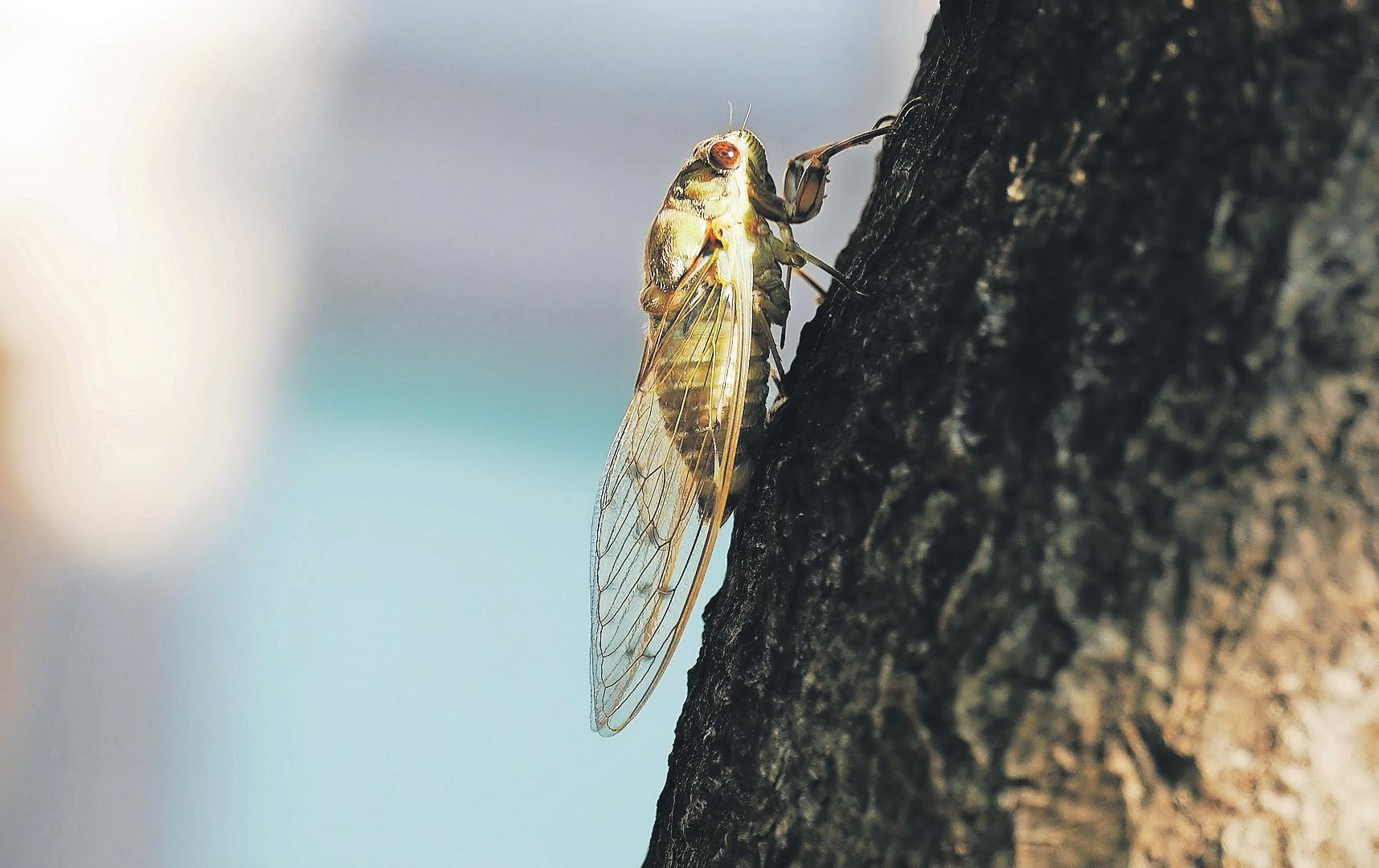
5 minute read
Animals
from 07162021 WEEKEND
by tribune242
The sounds of Summer
Animal matters | KIM ARANHA
Advertisement
Have you ever noticed how sounds and smells can bring back a particular memory in a split second?
Summers of the past, of my youth, of our youths: unbelievably lucid memories of occurrences and feelings can all be brought back by a single sound... the rustle of silk, the whiff of perfume, a touch, a song, a sound can evoke an almost overwhelming wave from the past.
A walk on the beach, a glass of wine overlooking an olive grove, furtive forbidden moments, tears, laughter, coming to terms with the inevitable; all nostalgic moments tucked into our subconscious ready to leap out at us and bowl us over in an instant.
Some of my most vivid memories of summer throughout my life involve the background night sounds of the cicadas, whether in the Bahamas or in Europe, they appeared to be everywhere.
The very thought of the exceptionally distinctive sound of cicadas makes me imagine still hot nights, a bright cloak of stars above our heads and that relentless summer sound.
During my Bahamas summers spent in the Berry Islands I remember going out into the inky black night and the cicada din was almost unbearable, and incidentally, were those stars brighter? No, but the air was cleaner, and there were less lights around to dilute the intensity of their sparkle. The air would be thick with humidity and the cicada’s call relentless.
In the mornings, the trees would be littered with the discarded shells of the insects uselessly decorating the landscape.
When I think of it, I do not think I have ever seen a living cicada, just his old, discarded skin, invariably clustered together on a single branch of a tree or crowded on the trunk of a coconut tree.
What is a cicada? He is absolutely not to be mistaken for a locust; two very different creatures.
They belong to the superfamily Cicadoidea and the cricket and locust belong to the order Orthopter. A cicada is a cousin of the cricket. The locust is more like a grasshopper, and they do not even look similar.
In a blog called “Italian Notes”, the author says: “You know summer has come to southern Italy when you can’t hear your own thoughts for the enervating noise of cicadas.”
That is so true, but not just in Southern Italy, I can assure you.
A rather amusing detail is that the cicada frequently never even leaves his home tree, and his amorous escapades undoubtedly are with a lady cicada from the same tree, so why on earth do that have to be so loud when they are literally inches, or at best, a few feet apart?
Cicadas are like living thermometers and the moment the temperature goes over 30 degrees centigrade they start to make noise and click to their heart’s content, finally switching off around noon only to get going again at dusk.
The Scandinavians think singing cicadas are romantic, but they can literally drown out the terms of endearment you might be trying to whisper.
They can be so noisy that you might even just wish for rain.
According to the Encyclopaedia Brittanica: “Cicadas are able to produce these sounds because they possess an organ that is almost unique among insects, the tymbal organ. ... Contraction of a tymbal muscle attached to the membrane causes it to bend, producing a clicking sound. The tymbal springs back when the muscle is relaxed.”
Cicadas are a sort of one-man band, whereas the cricket makes sound by rubbing its wings together (not its legs, as most people think).
They have the most extraordinary lives, one that nobody could envy, for sure.
“Female cicadas lay eggs in trees. When cicadas hatch, they drop to the ground and begin burrowing. They usually keep digging until they are about eight feet underground. They live there for either 13 or 17 years, depending on which brood they are in, and then tunnel their way to the surface. Once the adult cicadas surface, they linger for about five weeks before they start to die off.”
Imagine living for up to 17 years underground to surface only to die a few weeks later?
What I have been wondering about lately is where have all the cicadas gone?
I no longer hear the din that was the backdrop to the summer nights of my youth.
I no longer find hundreds of discarded cicada “clothing” on trees. Where have these noisy little fellows gone to?
Have we scared them away with too many lights, or killed them off with bug sprays and fertilizers? Or has the world simply changed, and they are not as prevalent?
Or worse still, as I get older, do I not hear them as clearly and they are actually out there screaming their heads off?
A CICADA on a tree
PET OF THE WEEK Let a little bit of magic into your life
By The Bahamas Humane Society
but an actual itch that needs to be medically treated. But that’s not slowing down her bubbly outgoing personality.
Pixie’s up at the front of her crate and saying hello to everyone who passes by.
The young lady is about ten months old and not quite ready for adoption yet (gotta get rid of that itch!), but she’s here to say there are many other pups ready to go home from the BHS, and won’t you please consider adopting one of them?
Also, she says, come back and adopt her when she’s ready. She’d love a playmate. For more information on Pixie and the other pups, please call 323-5138. Pixie looks forward to saying hello!







